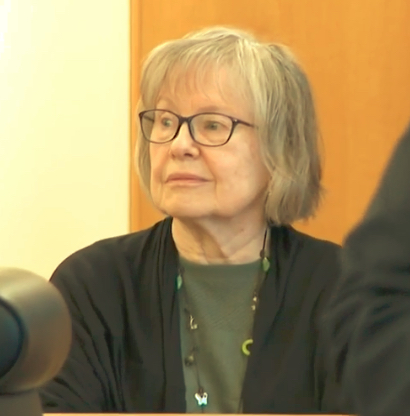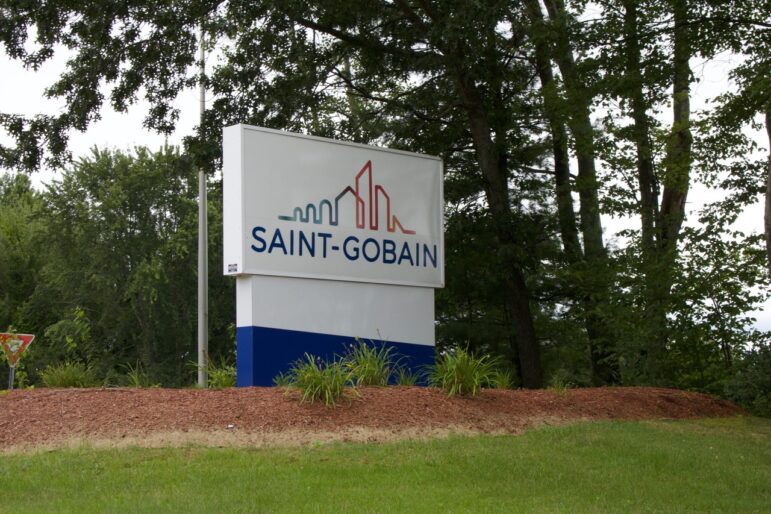In the world of campaign finance, this is becoming a familiar story: A nonprofit group is launched by individuals with political connections; has no physical office, volunteers or employees; and spends much of its money on political consultants, some of whom are linked to the operatives running the group.
Also, it does little or no spending on what might be called social welfare — a requirement of the nonprofit 501(c)(4) tax status it claims. IRS rules require (c)(4) groups, which don’t have to disclose the names of their donors, to keep political work to under 50 percent of their activity.
Oklahomans for a Conservative Future, though, stands apart from most other dark money groups in a couple of ways. The first: its dedication to backing just one candidate, former Oklahoma House Speaker T.W. Shannon, a Republican who made an ultimately failed 2014 bid for a U.S. Senate seat.
OCF told the IRS that it had spent $1.4 million boosting Shannon, but totals reported elsewhere in the group’s annual tax filings show that the sum is likely much higher, possibly even the entirety of the group’s $2.1 million in outlays. At a minimum, OCF’s political support came close to matching the $1.9 million that Shannon’s own campaign spent leading up to his primary.
The other twist? OCF owned up to spending too large a share of its resources on politics — and promised to do better next time around. In effect, it gave the IRS a dark money IOU.
All indications, though, are that the group will be reneging on that commitment.
Sooner showdown
Candidate-specific super PACs  Unlike DEPA, though, Heartland Principles makes no mention of the issue on its clandestine website, except deep within one of its white papers.
Unlike DEPA, though, Heartland Principles makes no mention of the issue on its clandestine website, except deep within one of its white papers.
At least one television station believed DEPA to be the true funder of the”
 The web address listed in the ad, LiftTheExportBan.com, redirect to DEPA’s website, which makes no mention of Heartland Principles. In fact, the only mention of the shared sponsorship between the groups exists in slide 41 of a DEPA PowerPoint presentation from August. Any mention of Heartland Principles disappeared from the same slide by December.
The web address listed in the ad, LiftTheExportBan.com, redirect to DEPA’s website, which makes no mention of Heartland Principles. In fact, the only mention of the shared sponsorship between the groups exists in slide 41 of a DEPA PowerPoint presentation from August. Any mention of Heartland Principles disappeared from the same slide by December.
So, did a nonprofit formed by Oklahoma political operatives help carry the water of a trade association of independent oil producers — and if so, why?
The answer may be found in a former professional football player and member of Congress. As it happens, Chad Alexander was a longtime aide to former Rep. Julius Caesar “J.C.” Watts, Jr. (R-Okla.) — who is the longtime lobbyist for the DEPA. The two have remained close; when Alexander was given a radio show last year, Watts appeared as a guest twice in the first month.
Watts was also a mentor to candidate Shannon, who had worked for him in Congress. Shannon received Watt’s endorsement in the 2014 GOP primary. Another tie: When Alexander left OCF, Watts’ former campaign manager, John Woods, did a brief stint on OCF’s board, according to FCC filings.
Watts says he doesn’t remember whether he’s responsible for the strange partnership.
“I don’t recall making the connection” between OCF/Heartland Principles and DEPA, he told OpenSecrets Blog in an email. But there’s little question that Heartland helped share the cost of airing the ad nationwide and keeping the pressure on federal lawmakers to end the export prohibition.
In a major coup for US oil producers, the ban was lifted as a part of the omnibus package passed by Congress last December.
Overhead overcounted?
One remaining question is whether Heartland Principles’ airings of DEPA’s ads last year will add up to enough social welfare to make up for its political activity on behalf of Shannon in 2014.
Experts think it’s unlikely.
For one thing, in its IOU to the IRS, Heartland Principles counted only the direct costs of its pro-Shannon advocacy as political spending. That implies that everything else — payments to fundraisers, lawyers and companies linked to its board — amounted to expenditures for social welfare purposes. But the group didn’t spearhead major social welfare programs, only vague activities like “promoting conservative principles and policies within the meaning of Internal Revenue Code 501(c)(4)” and “general consulting related to public policy advocacy and initiatives.” And there’s no concrete evidence of even that.
That won’t hold water, according to Lloyd Mayer, a specialist in tax and election law at Notre Dame University’s law school. OCF, like any other not-for-profit organization filing a 990, “has to allocate any overhead expenditures — fundraising, legal, administrative, etc. — between its political and social welfare activities,” Mayer told OpenSecrets Blog.
“The IOU strategy will not work either,” Mayer said. “Tax-exempt status is determined on a year-by-year basis, so if this group’s primary purpose was political in 2014 then it was not tax-exempt under 501(c)(4) in that year even if in 2015 it did qualify under 501(c)(4).”
His view is shared by Marc Owens, a Washington lawyer and former head of the IRS’ exempt organizations division, who calls Heartland’s 2014 filing a “contender for a Pulitzer in the category of ‘fictional form 990s.’” According to Owens, “the IRS would require the organization to establish, via contemporaneous evidence, the link between any particular expenditure and furthering social welfare — in other words, [the agency won’t accept] assumptions that everything not tied explicitly to the referenced Senate race is automatically a good (c)(4) expenditure.”
If the past is any guide, though, chances are slim that the IRS will take action. There’s only a seven in 1,000 chance that anyone at the IRS will look at the report, and an even smaller possibility that it will be set aside for additional scrutiny. Even if that happens, it will be years before the the agency decides what, if anything, to do about OCF’s activity.
The same is generally true at the Federal Election Commission, which can take years to look into allegations of improper campaign finance activity and even then seldom agrees to take action.
Nobody affiliated with the group responded to questions we submitted. We received only an email from OCF spokesperson Julie Shutley:
“Thank you for your interest in Heartland Principles. As a general policy we do not release additional information on the organization’s internal operations outside of what is required by law. Please note that we take seriously our compliance obligations and have fully complied with all IRS rules and regulations.”
Heartland Principles’ next 990, which will cover the 2015 activities that it claimed would make up for its 2014 politicking, likely won’t be filed until November.





